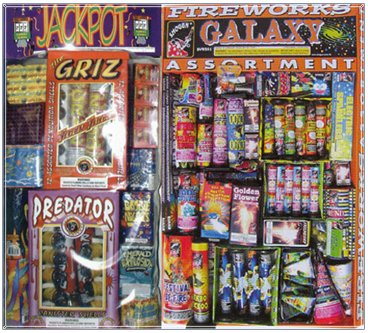The Bewildering Web Of U.S. Fireworks Laws
Image may be NSFW.
Clik here to view.
” Americans who want to light off some fireworks to celebrate this Fourth of July must navigate a confusing set of rules and regulations that vary across state, county and even town lines. Even officially sanctioned fireworks shows can run afoul of the law.
The Fourth of July is almost here. It will be a day of pies, picnics, grills and anticipation of the sky darkening into a perfect backdrop, because there are few things Americans enjoy more than fireworks bursting in air.
Plenty of people are busily stocking up on everything for the perfect backyard display: sparklers, bottle rockets, Roman candles, fountains and finales. But every year, some of these backyard pyrotechnic displays run afoul of the law. It’s not hard to do. The laws surrounding fireworks can vary dramatically state by state, county by county and even across town lines. How did things get so confusing?
States’ Rights
Fireworks rules may seem unnecessarily restrictive in some places, but they were much more intense just 50 years ago when several states had full or partial bans of fireworks, Robert Flanagan of Black Cat Fireworks says. “[The states] closed up in the ’30s and ’40s when we didn’t have good regulations.” Fuses, materials and even the amount of explosives in seemingly similar products could vary dramatically. But in the years since, the fireworks industry and the Consumer Products Safety Commission have been working to make fireworks safer and more regulated. According to Julie Heckman, the executive director of the American Pyrotechnics Association, a trade group that represents the industry, many states began loosening their fireworks laws around the year 2000 and continued the trend as they realized how much revenue fireworks taxes could bring to their states.
So today the rules run the gamut. Wyoming, for example, complies with federal regulations but makes no special rules at the state level, leaving fireworks regulations up to local governments. Other states, meanwhile, have passed extensive legislation to restrict the ages of people that buy or sell fireworks, or allow fireworks to be sold only on a few days each year (usually around the July 4 or New Year’s Eve). Just four maintain a full ban on consumer fireworks: Massachusetts, New Jersey, New York and Delaware.“
—
Image may be NSFW.
Clik here to view.
